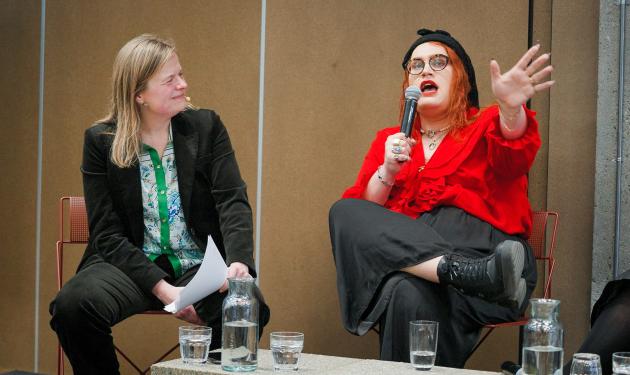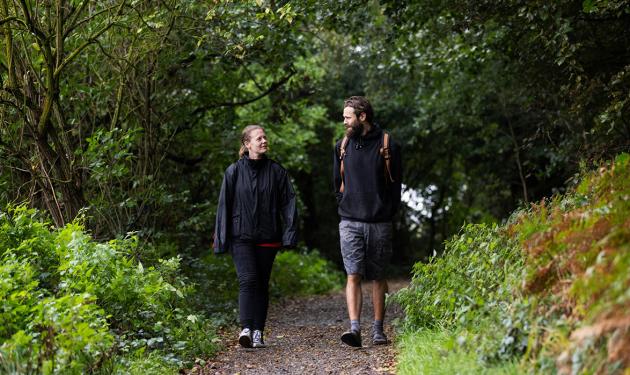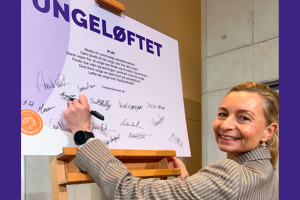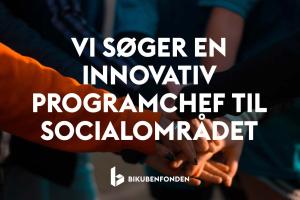Young people on the edge
In Denmark, we have young people who lead lives that only few can imagine. They struggle with complex social and mental problems. They are excluded from many of society's main communities in connection with education and the labour market. They live at the very edge of society and are at risk of ending up living their entire lives as vulnerable. In the Bikuben Foundation, we strive to prevent young people from ending up on the edge, and we strive to help those of the young who are in the midst of the problems.
Co-creation generates permanent change
We wish to launch initiatives that will try out new approaches and methods for strengthening young peoples' opportunities for coping with life; and we believe in the importance of involving the young people's perspectives, dreams and desires for their own lives in our efforts to develop such initiatives. We also believe that collaboration across disciplines and sectors is the way towards creating holistic solutions and permanent change. An important premise for our contribution to the creation of such change is to be in dialogue with all who are working with young people on the edge. But, rather than beginning by introducing an idea for a specific project, we much prefer to enter into a dialogue about the specific problem areas that we should work towards solving – and about who will be in a position to contribute to the creation of these solutions.
Below, we have listed the focus areas that constitute the basis for our work as well as our permanent application rounds pertaining to the social area.
In collaboration with the think tank Mandag Morgen (Monday Morning), we have prepared a discussion paper focused on how we strengthen and develop initiatives targeted at young people on the edge. Here, you will find analyses, stories and examples that put the challenges faced by vulnerable young people into perspective, proposing a road ahead with the pivot point being the capacity for coping with life.
READ THE DISCUSSION PAPER HERE (in Danish only)
Vi modtager ikke ansøgninger og støtter ikke færdigudviklede indsatser. Nye samarbejdsrelationer etableres primært i innovationsprocesser og i allianceopbygning på specifikke problemstillinger. Du er altid velkommen til at kontakte os, hvis du har:
- Identificeret udfordringer og uforløste potentialer i unges liv og omverden, som ikke adresseres af nuværende indsatser og praksis.
- Spæde erfaringer med ny praksis, som viser nye veje i arbejdet med unge på kanten, men hvor nuværende tænkning, lovgivning eller kultur på området spænder ben for en større udbredelse.
Why do you say that you do not support projects?
Over the years, we have supported many individual projects which, regrettably, were not continued after the expiry of the project period. A number of projects were launched before problem areas had been mapped out and the solution defined. This is why we are first and foremost focused on understanding the problem from a 360-degree perspective and then begin to develop solutions for implementation and scaling.
How do I apply? Any deadlines I should be aware of?
We work in part with specific application rounds for which there are deadlines and in part with ongoing dialogues concerning relevant initiatives within our strategic focus area; young people on the edge, aged between 13 and 30. You are always welcome to contact our secretariat to learn more about how we work. You can find further information about current application rounds elsewhere on this site.
Do you support core costs?
Yes, we support both core administrative costs and development.
Do you support research within the area?
As a point of departure, we do not support research. But we may support research, on the provision that such research is an integrated element in an initiative.
What defines the Bikuben Foundation's evaluation procedure?
The core principle of our evaluation practice is that not necessarily everything must be subjected to evaluation. We continuously assess which initiatives to evaluate. Any evaluation should contribute to knowledge and learning – with respect to the Bikuben Foundation, the organisation behind the initiative and the overall field. This also means that our evaluations will all be published.

















